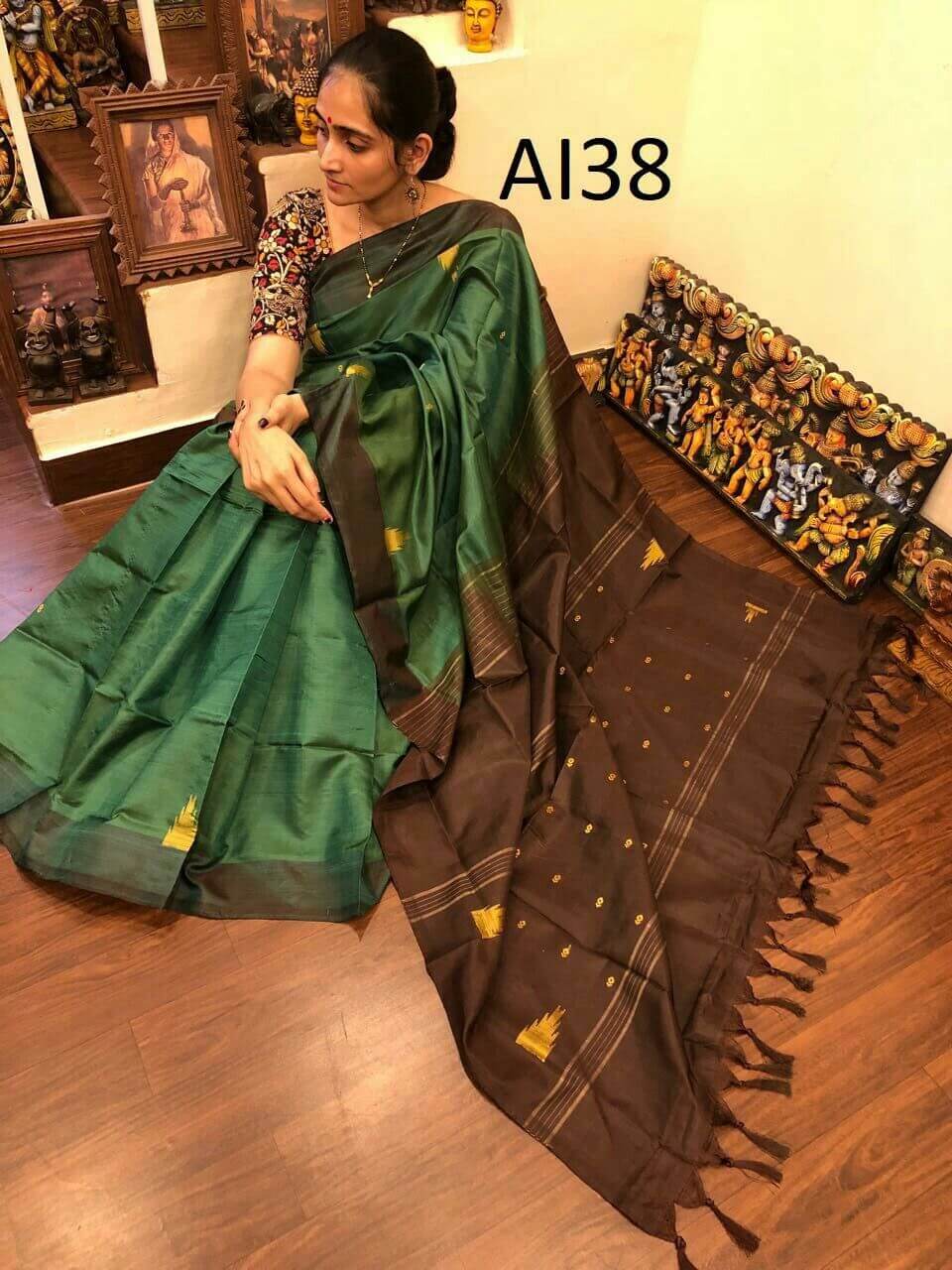So you like your saris made of natural fibres – cotton, silk, perhaps even bamboo.
Well, you can now try saris made of banana fibres.
C. Sekar, a third-generation weaver from Chennai’s famous Anakaputhur district, invented the banana fibre sari, following his passion for natural products and sustainable products.
It was a challenge and there was no model, but Sekar worked on the technique with his wife Padma and adult children Karthik, Mahendran and Mohan, all of them trained weavers.
“We created our yarn from banana fibres extracted from banana stems,” he described.
“Banana stems are plentiful in our state, but the process of manually extracting fibre out of the stem is a time-consuming one. The stem of banana has to be dried first, and then fibres are manually extracted to make the yarn.”

Natural dyes such as turmeric and indigo are used for colouring.
“The yarn is then treated in various herbs, spices and even cow dung for their antibacterial properties. Medicinal herbs like tulsi and mint are also used ensure that skin allergies are kept at bay.”
It takes two weavers two working days to create a full sari.
The saris costs anywhere from Rs 1,800 to Rs 10,000, and Sekar revealed there has been high demand.

Anakaputhur, a suburb of Chennai, was once noted for its weavers, and had a minimum of 5,000 handlooms with each home having at least 5 to 10 each. But today, due to a competitive industry and failure in marketing, the number of looms and weavers have declined.
Sekar’s own family business was thriving in the 1970s, with the products being exported mainly to Nigeria. The checked Madras fabric was his family’s speciality. With the change in political climate in Africa there was a ban on imports, leading to massive losses to the Anakaputhur weavers in general.
Today, Sekar has regrouped with women’s self-help groups to work on the banana yarn.
Back in 2011 Sekar found himself in the Limca Book of Records, India’s own version of the Guinness Book of World Records, for creating a sari using 25 natural fibres including banana, jute, bamboo, pineapple and others.
IANS
Photos: Pinterest
READ ALSO: Contemporising the kanjivaram sari
Link up with us!
Indian Link News website: Save our website as a bookmark
Indian Link E-Newsletter: Subscribe to our weekly e-newsletter
Indian Link Newspaper: Click here to read our e-paper
Indian Link app: Download our app from Apple’s App Store or Google Play and subscribe to the alerts
Facebook: facebook.com/IndianLinkAustralia
Twitter: @indian_link
Instagram: @indianlink
LinkedIn: linkedin.com/IndianLinkMediaGroup



